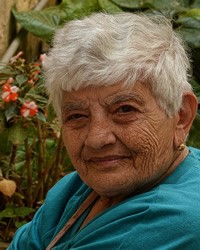The Republic of Malta is a densely populated, developed European country in the European Union. Malta is an island nation located in southern Europe that includes the inhabited islands of Malta, Gozo, and Comino along with a number of smaller, uninhabited islands. It is situated in the central part of the Mediterranean Sea southwest of Sicily, Italy and north of Tunisia. Gibraltar is to its west and Alexandria is to its east.
Its capital is Valletta and its largest city is Birkirkara. The official languages are Maltese and English.
Throughout its history, Malta's location in the Mediterranean Sea has given it strategic importance. Consequently, the island nation was conquered many times during its history. Malta gained independence from the United Kingdom in 1964 and became a Republic in 1974, while retaining its membership in the Commonwealth of Nations. Today it is a member of the European Union (joined in 2004) and the United Nations.
Malta is known for its old world history. The most notable site being the Megalithic Temples, which are the oldest freestanding structures in Europe. The Apostle Paul was shipwrecked on Malta in the first century AD and Malta is thought by some to be a possible location of the mythical city of Atlantis.
Malta is a group of small islands located in the central Mediterranean Sea off the southwest coast of Sicily, Italy. Malta enjoys a Mediterranean climate, which is warm to hot with dry summers and warm, wet winters. Evergreen trees and shrubs dominate its natural landscape while non-native plants can survive where irrigation is present. Little to no rainfall is received during the summer months. Maltese and English are the official languages.
Malta's major resources are limestone, desirable geographic location, and a productive labor force. Malta produces only about of its food needs, has limited freshwater supplies, and has no domestic energy sources. The economy is dependent on foreign trade (serving as a freight trans-shipment point), manufacturing (especially electronics and textiles), and tourism. Tourism infrastructure has increased dramatically over the years and a number of quality hotels are present on the islands.
Film production is a growing contributor to the Maltese economy, with several big-budget foreign films shooting in Malta each year. The country has increased the exports of many other types of services such as banking and finance. Malta's government invests heavily in education from primary through college levels.
Malta has recently privatized some state-controlled firms and opened markets in order to participate in the European Union (EU), which it joined on May 1, 2004. Malta and Tunisia are currently discussing the commercial exploitation of the continental shelf between their countries for petroleum exploration.
Native Maltese make up the majority of the island nation's population. British immigrants, many of whom retired to Malta, make up the largest group of minority residents. Malta's population density of over 3,300 people per square mile is by far the highest in the EU and one of the highest in the world. Females outnumber males slightly throughout Malta.
The population's age composition is similar to the age structure prevalent in the EU. Since 1967, there has been a trend indicating an aging population that is expected to continue into the foreseeable future. Despite an expected rise in Malta's old-age-dependency-ratio, the number of young people under 25 is much higher than the average for Europe.
Maltese legislation recognizes both civil and religious marriages. Annulments by the Ecclesiastes and civil courts are unrelated and are not necessarily granted. There are no divorce laws and abortion in Malta is illegal. A person must be 18 years of age to marry.
Art, literature, geographical beauty, cultural festivals, sports, Mediterranean cuisine, and traditional observances are all a part of life in Malta. All typical forms of travel are available in Malta. All media forms are also available. Malta functions much like any other modern European country.
Malta has a long history of Roman Catholicism serving as its national religion and it is practiced by the vast majority of Maltese. There is freedom to practice any form of religion and many other religions are practiced but none have large numbers of participants.
Just like all nations of the world, Malta needs clear, consistent, and relentless presentation of Biblical Christianity.
Pray that God sends workers into this field of opportunity and that He equips Maltese citizens to perform His work locally, regionally, and worldwide.
Scripture Prayers for the Maltese in Italy.
| Profile Source: Wallace Revels |










